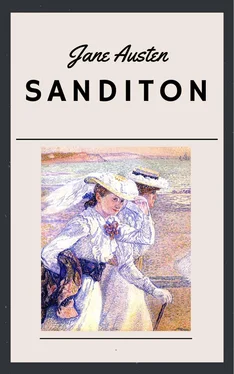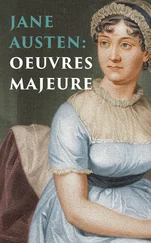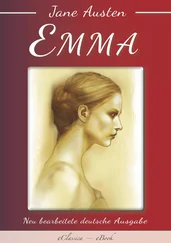Jane Austen - Jane Austen - Sanditon
Здесь есть возможность читать онлайн «Jane Austen - Jane Austen - Sanditon» — ознакомительный отрывок электронной книги совершенно бесплатно, а после прочтения отрывка купить полную версию. В некоторых случаях можно слушать аудио, скачать через торрент в формате fb2 и присутствует краткое содержание. Жанр: unrecognised, на английском языке. Описание произведения, (предисловие) а так же отзывы посетителей доступны на портале библиотеки ЛибКат.
- Название:Jane Austen - Sanditon
- Автор:
- Жанр:
- Год:неизвестен
- ISBN:нет данных
- Рейтинг книги:4 / 5. Голосов: 1
-
Избранное:Добавить в избранное
- Отзывы:
-
Ваша оценка:
- 80
- 1
- 2
- 3
- 4
- 5
Jane Austen - Sanditon: краткое содержание, описание и аннотация
Предлагаем к чтению аннотацию, описание, краткое содержание или предисловие (зависит от того, что написал сам автор книги «Jane Austen - Sanditon»). Если вы не нашли необходимую информацию о книге — напишите в комментариях, мы постараемся отыскать её.
Sandition, although it remained unfinished, is truly Jane Austen at her funniest. A comedy, it continues the strain of burlesque and caricature she wrote as a teenager and in private throughout her life.
Jane Austen - Sanditon — читать онлайн ознакомительный отрывок
Ниже представлен текст книги, разбитый по страницам. Система сохранения места последней прочитанной страницы, позволяет с удобством читать онлайн бесплатно книгу «Jane Austen - Sanditon», без необходимости каждый раз заново искать на чём Вы остановились. Поставьте закладку, и сможете в любой момент перейти на страницу, на которой закончили чтение.
Интервал:
Закладка:
In a most friendly manner Mr. Heywood here interposed, entreating them not to think of proceeding till the ankle had been examined and some refreshment taken, and very cordially pressing them to make use of his house for both purposes.
“We are always well stocked,” said he, “with all the common remedies for sprains and bruises. And I will answer for the pleasure it will give my wife and daughters to be of service to you in every way in their power.”
A twinge or two, in trying to move his foot, disposed the traveller to think rather more than he had done at first of the benefit of immediate assistance; and consulting his wife in the few words of “Well, my dear, I believe it will be better for us,” he turned again to Mr. Heywood, and said: “Before we accept your hospitality sir, and in order to do away with any unfavourable impression which the sort of wild-goose chase you find me in may have given rise to, allow me to tell you who we are. My name is Parker, Mr. Parker of Sanditon; this lady, my wife, Mrs. Parker. We are on our road home from London. My name perhaps, though I am by no means the first of my family holding landed property in the parish of Sanditon, may be unknown at this distance from the coast. But Sanditon itself—everybody has heard of Sanditon. The favourite for a young and rising bathing-place, certainly the favourite spot of all that are to be found along the coast of Sussex—the most favoured by nature, and promising to be the most chosen by man.”
“Yes, I have heard of Sanditon,” replied Mr. Heywood. “Every five years, one hears of some new place or other starting up by the sea and growing the fashion. How they can half of them be filled is the wonder! Where people can be found with money and time to go to them! Bad things for a country—sure to raise the price of provisions and make the poor good for nothing—as I dare say you find, sir.”
“Not at all, sir, not at all,” cried Mr. Parker eagerly. “Quite the contrary, I assure you. A common idea, but a mistaken one. It may apply to your large, overgrown places like Brighton or Worthing or Eastbourne but not to a small village like Sanditon, precluded by its size from experiencing any of the evils of civilization. While the growth of the place, the buildings, the nursery grounds, the demand for everything and the sure resort of the very best company whose regular, steady, private families of thorough gentility and character who are a blessing everywhere, excited the industry of the poor and diffuse comfort and improvement among them of every sort. No sir, I assure you, Sanditon is not a place—”
“I do not mean to take exception to any place in particular,” answered Mr. Heywood. “I only think our coast is too full of them altogether. But had we not better try to get you—”
“Our coast too full!” repeated Mr. Parker. “On that point perhaps we may not totally disagree. At least there are enough. Our coast is abundant enough. It demands no more. Everybody’s taste and everybody’s finances may be suited. And those good people who are trying to add to the number are, in my opinion, excessively absurd and must soon find themselves the dupes of their own fallacious calculations. Such a place as Sanditon, sir, I may say was wanted, was called for. Nature had marked it out, had spoken in most intelligible characters. The finest, purest sea breeze on the coast—acknowledged to be so—excellent bathing—fine hard sand—deep water ten yards from the shore—no mud—no weeds—no slimy rocks. Never was there a place more palpably designed by nature for the resort of the invalid—the very spot which thousands seemed in need of! The most desirable distance from London! One complete, measured mile nearer than Eastbourne. Only conceive, sir, the advantage of saving a whole mile in a long journey. But Brinshore, sir, which I dare say you have in your eye—the attempts of two or three speculating people about Brinshore this last year to raise that paltry hamlet lying as it does between a stagnant marsh, a bleak moor and the constant effluvia of a ridge of putrefying seaweed—can end in nothing but their own disappointment. What in the name of common sense is to recommend Brinshore? A most insalubrious air—roads proverbially detestable—water brackish beyond example—impossible to get a good dish of tea within three miles of the place. And as for the soil it is so cold and ungrateful that it can hardly be made to yield a cabbage. Depend upon it, sir, that this is a most faithful Brinshore—not in the smallest degree exaggerated—and if you have heard it differently spoken of—”
“Sir, I never heard it spoken of in my life before,” said Mr. Heywood. “I did not know there was such a place in the world.”
“You did not! There, my dear,” turning with exultation to his wife, “you see how it is. So much for the celebrity of Brinshore! This gentleman did not know there was such a place in the world. Why, in truth, sir, I fancy we may apply to Brinshore that line of the poet Cowper in his description of the religious cottager, as opposed to Voltaire—She, never heard of half a mile from home.”
“With all my heart, sir, apply any verses you like to it. But I want to see something applied to your leg. And I am sure by your lady’s countenance that she is quite of my opinion and thinks it a pity to lose any more time. And here come my girls to speak for themselves and their mother.” (Two or three genteel-looking young women, followed by as many maid servants, were now seen issuing from the house.) “I began to wonder the bustle should not have reached them. A thing of this kind soon makes a stir in a lonely place like ours. Now, sir, let us see how you can be best conveyed into the house.”
The young ladies approached and said everything that was proper to recommend their father’s offers, and in an unaffected manner calculated to make the strangers easy. And, as Mrs. Parker was exceedingly anxious for relief, and her husband by this time not much less disposed for it, a very few civil scruples were enough; especially as the carriage, being now set up, was discovered to have received such injury on the fallen side as to be unfit for present use. Mr. Parker was therefore carried into the house and his carriage wheeled off to a vacant barn.
Chapter 2
The acquaintance, thus oddly begun, was neither short nor unimportant. For a whole fortnight the travellers were fixed at Willingden, Mr. Parker’s sprain proving too serious for him to move sooner. He had fallen into very good hands. The Heywoods were a thoroughly respectable family and every possible attention was paid, in the kindest and most unpretending manner, to both husband and wife. He was waited on and nursed, and she cheered and comforted with unremitting kindness; and as every office of hospitality and friendliness was received as it ought, as there was not more good will on one side than gratitude on the other, nor any deficiency of generally pleasant manners in either, they grew to like each other, in the course of that fortnight, exceedingly well.
Mr. Parker’s character and history were soon unfolded. All that he understood of himself, he readily told, for he was very open-hearted; and where he might be himself in the dark, his conversation was still giving information, to such of the Heywoods as could observe. By such he was perceived to be an enthusiast on the subject of Sanditon, a complete enthusiast. Sanditon—the success of Sanditon as a small, fashionable bathing place, was the object for which he seemed to live. A very few years ago, it had been a quiet village of no pretensions, but some natural advantages in its position and some accidental circumstances having suggested to himself, and the other principal landholder, the probability of its becoming a profitable speculation, they had engaged in it, and planned and built, and praised and puffed, and raised it to something of young renown; and Mr. Parker could now think of very little besides.
Читать дальшеИнтервал:
Закладка:
Похожие книги на «Jane Austen - Sanditon»
Представляем Вашему вниманию похожие книги на «Jane Austen - Sanditon» списком для выбора. Мы отобрали схожую по названию и смыслу литературу в надежде предоставить читателям больше вариантов отыскать новые, интересные, ещё непрочитанные произведения.
Обсуждение, отзывы о книге «Jane Austen - Sanditon» и просто собственные мнения читателей. Оставьте ваши комментарии, напишите, что Вы думаете о произведении, его смысле или главных героях. Укажите что конкретно понравилось, а что нет, и почему Вы так считаете.












